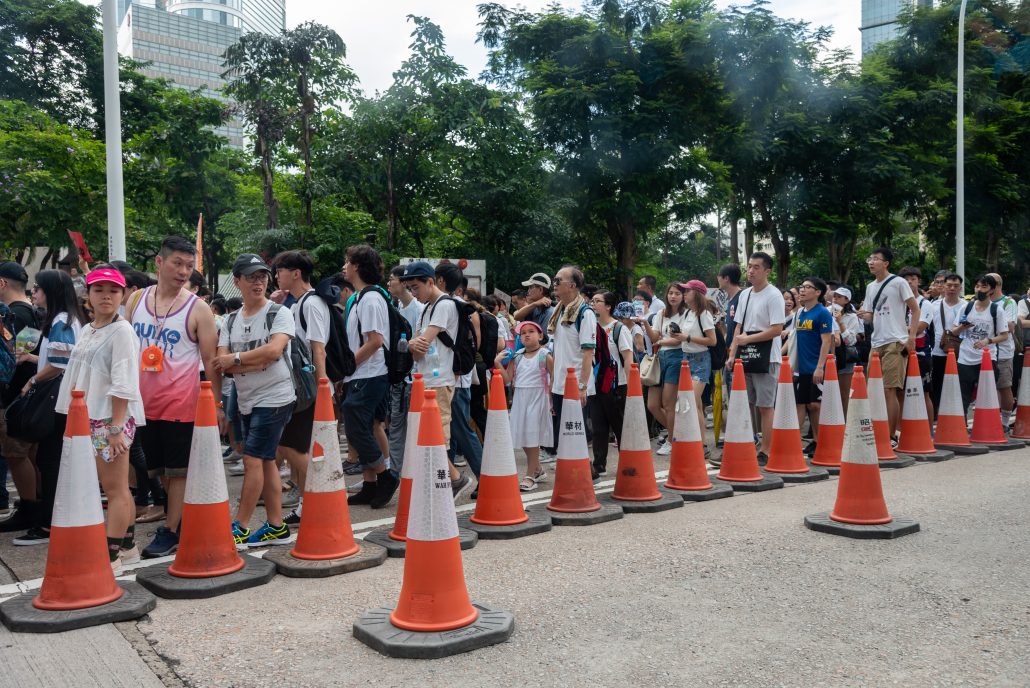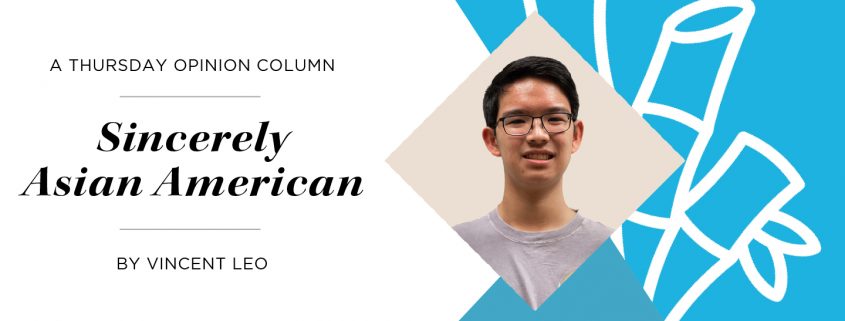Sincerely Asian American: Understanding the power of the Hong Kong protests

It was the afternoon of a summer day in Hong Kong, and I was on my way back to my hotel. My taxi driver, after reluctantly accepting me on the street, rocketed down the road in hopes of beating the traffic before his shift ended. Tumbling around in the backseat as we neared the final destination, the echoes of people shouting began to radiate into the car.
Quickly becoming aware of what was happening, I pulled my camera out and snapped some photos of a sea of protestors outside my window before my driver sped through the green light. Realizing I had just witnessed a once-in-a-lifetime experience, I was both in awe and ready to discuss what had happened with people at home who had witnessed the same event through their TV screens.
Fast forward to this semester: It’s been almost five months since the protests started, and I’m presenting an article from The New York Times about the riots and unrest in one of my classes. Although I picked this article for its more lighthearted tone — with the author quoting Hong Kong protestors using anonymous quirky nicknames like “Fat Boy” — I thought I was sharing an issue everyone was familiar with. As the class came to an end, my professor thanked me for choosing the topic, telling me that it was the first time he truly understood the situation in Hong Kong.
This wasn’t the first time I had engaged in a conversation with someone who wasn’t fully aware of the protests. Whether it’s correcting a factually incorrect political meme a friend texted me or having lengthy class discussions with my peers, I’ve known that this issue is difficult to comprehend, specifically why Hong Kong is fighting and is still continuing to do so today.
Upon being returned to China in 1997 after 156 years of British control, Hong Kong was designated a special administrative region of China and was promised a high degree of autonomy, retention of its legislative system and its people’s rights and freedoms for 50 years. However, demonstrations and protests started brewing after an extradition law was proposed that would have allowed the transfer of criminal fugitives to mainland China. With the possibility that Hong Kong residents and visitors would be subjected to the legal system of China, the citizens protested the bill until it was declared “dead,” and now, young adults are leading the charge in fighting to maintain the region’s democracy and civil liberties.
Although the matter is complex, I expected people to know the intricacies of the issue, especially given how much it is being covered. It’s not like the problem is being censored and hidden; there are plenty of publications broadcasting everything from daily updates to long feature pieces.
At USC, and in the Annenberg School for Communication and Journalism, especially — where the news is at the forefront of everyone’s minds — staying on top of global issues like this is the status quo. Given how this issue impacts young adults, it’s upsetting that people fail to understand the gravity of it.
Before continuing, it’s important that I discuss why this topic is so important to me. My visit to Hong Kong wasn’t a spur of the moment trip; I wanted to explore my family roots. My father was born in Hong Kong, and he lived there before immigrating to the United States. The place had been a mysterious spectacle for me, and traveling there only piqued my interest in understanding Hong Kong.
Even though I have a stronger tie to this issue than most Americans, I find it disgraceful that people are not aware of key details of Hong Kong’s struggles. The Hong Kong protests make up a global issue that everyone needs to focus on. The problems may seem far away from home, but they highlight important values we cherish in the U.S. such as civil rights, democracy and freedom.
These issues can impact the fate of our world, and this applies to other political disputes too. The Hong Kong protests should receive the same attention as issues relevant to us in the states such as gun control, the upcoming elections and global issues such as climate change.
I’m not here to criticize anyone individually, say that anyone is at fault for not being a news junkie or ridicule someone for not having an opinion on this issue. However, this trend of not understanding the protests, after tensions have been continuing for five months, is unacceptable.
Don’t let the Hong Kong protests become a forgotten statistic.
Vincent Leo is a sophomore writing about Asian American identity. His column, “Sincerely Asian American,” runs every other Thursday.

